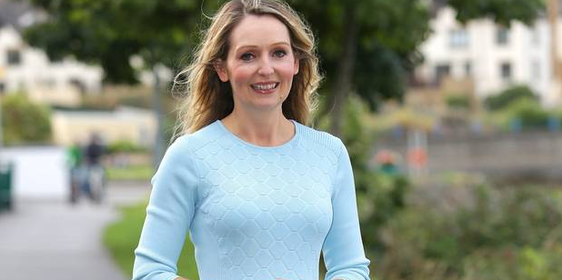Dear Allison: 'My sister's social media posts of my 14-year-old niece in skimpy outfits feel inappropriate to me'

Q My sister has a 14-year-old daughter who dresses, as most girls her age do, in a rather provocative manner. This is their choice and I don’t really have a problem with it. My own 17-year-old is similar. My issue is that my sister posts pictures on Instagram, Facebook and Twitter of her daughter about to go out in her skimpy clothes in very adult poses, with comments about how stunning her daughter is. It feels very inappropriate to me – almost like child abuse. I feel like reporting her to Tusla. What do you think?
A I, like you, wonder, when this ‘look’ will end as the clothes, or lack of them, have nothing to do with fashion. I think the popular ‘style’ and social media image portrayal is much more insidious than most realise and is a complex problem facing young people.
It can be useful to see this through a psychological funnel, to get a broad perspective on how provocative wear is the norm in the majority of houses, with more duck pouts than smiles strewn across social media.
With the recent passing of Beverly Hills 90210’s Luke Perry, I remembered my sense of dismay at how much more grown up, sophisticated, and of course beautiful the stars were, in comparison to my gawky teenage self.
Now, I know that the actors were mostly in their mid-twenties acting as secondary school kids. That seems like a long time ago when we compare the pressure on children now to look and be more adult-like from a much younger age.
A 2006 report from The Australian Institute called ‘Corporate Paedophilia – the sexualisation of Australian children’ examined these issues. The context of the word ‘paedophilia’ was that advertising and marketing were stealing childhood by representing children in a sexy, miniature-adult way that was “an abuse both of children and of public morality”. Strong words, but ones worth considering.
In the past, children were indirectly influenced by the portrayal of adults in ads looking sexy. The target market age group then dropped with direct advertising and marketing using children to sell to children. The report explored the psychological, sexual and emotional ramifications and how children and adolescents were portrayed in advertisements – social media wasn’t examined at the time.
Thirteen years later, I wonder how a similar report would question how protected children are from being over-sexualised in their online experience.
In a way, without clear boundaries or rules it is open to everyone’s own moral interpretation, including your sister’s and yours. Open conversations minus shame and judgement are an optimal place to start.
The practice of ‘sharenting’ is pretty widespread in social media. In your sister’s case, perhaps her daughter at this point is comfortable that her mum is sharing across the social media platform. Have you asked how her daughter feels about this?
Perhaps you could talk about what seems adorable to a parent may seem sexy and provocative to others and the problem is, who the ‘others’ are. This is where social media exposure and digital footprints may leave images that many may not be comfortable with in years to come.
A conversation over social media consent and sharing is something we all need to start actively having.
Some parents befriend their teenager online, and while it’s certainly a good idea to see what they are doing, the question about how they are feeding into the child’s self-esteem and self-worth in terms of ‘likes’, yours or theirs, is certainly one to explore. The developing adolescent brain gets a reward hit of dopamine when they receive those ‘likes’ and is primed to seek them. Could you open a non-judgemental conversation with your sister about this? She may not be willing to hear your point but it’s a conversation worth having. Simply, asking why she likes sharing her daughter’s pictures could be a good starter question.
Wouldn’t it be a really good national campaign to examine the large scale implications where we question what is being placed upon young heads? I see a lot of adolescents who look and sound very sophisticated. I do feel they are missing a lovely unpressurised time of just being kids. I miss goofy adolescents, I feel the awkward teenager has disappeared externally, but not internally and mental health rates of distress will attest to that.
Before we condemn, understand. Often, especially with siblings, we consciously or unconsciously think they think the same as we do, but it is often not the case.
Talk about your worries and fears with your sister. There is a strong chance that she has absolutely no idea of the long- term possible consequences.
If you have a query, email Allison in confidence at [email protected]
Source: Read Full Article